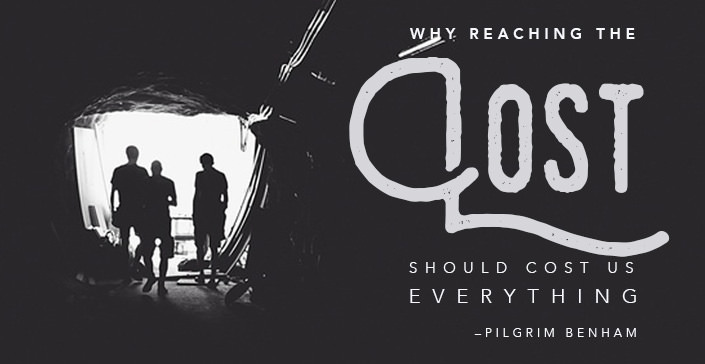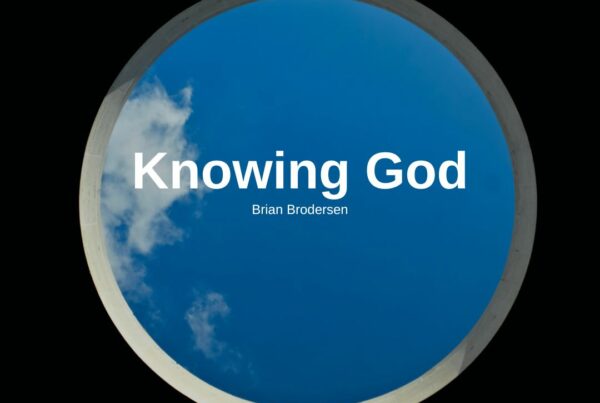
He said to them, “Whoever desires to come after Me, let him deny himself, and take up his cross, and follow Me. For whoever desires to save his life will lose it, but whoever loses his life for My sake and the gospel’s will save it” (Mark 8:34-35).
Our culture is one of self-preservation and self-exaltation. Reality television shows like “Survivor” and “Running Wild” highlight for us feats like how to survive off of scorpions in the wilderness for a week. Business leaders coach us on how to make the biggest bang for our buck, to yield the highest “return on investment.” Sometimes even well-meaning pastors and leaders ostentatiously flaunt in 140 characters or less their weekend success, revealing how much they have done for the kingdom.
Many companies promise great benefits if we will just sign up and become a member of some program they’re promoting: Join now and we will make all of your wildest dreams come true. Two months in and we are canceling the service and feverishly trying to get our $7.99/month refunded to us!
Dietrich Bonhoeffer, author of “The Cost of Discipleship,” said, “When Christ calls a man, He bids him come and die.” This reality that Jesus communicates about discipleship goes against everything that is natural and comfortable for us. And yet these are the requirements for following Jesus.
Jesus lays out the conditions for His followers upfront: it’s going to involve surrender, death, and obedience. This means laying down our lives, our privileges, and our comfort for our church, our community, and even our enemies. Taking up our cross is more than going through hardship—it means coming to a literal end of ourselves. Paul says in 1 Corinthians 15:31, “I die daily!” He reminds us in Galatians 2:20 that we’ve already been “crucified with Christ,” and Christ now lives in us. Following Jesus means turning away from the other paths and perspectives we’ve been used to seeking after.
Around the nineteenth century, Garibaldi, the Italian nationalist who led 1,000 volunteers to capture Sicily and Naples, cleverly appealed for recruits in this way. He said, “I offer neither pay, nor quarters, nor food; I offer only hunger, thirst, forced marches, battles and death. Let him who loves his country with his heart, and not merely with his lips, follow me.”
Our communities don’t need churches coming in and doing “felt needs surveys” telling them why they desperately need to attend our church. What they need is to see acts of kindness demonstrated as we extend Christ’s vicarious love to real people in desperate situations.
Charles Spurgeon said, “Christians live by dying. Kill self and Christ shall live in you, and so shall you, yourself, most truly live. The way upward in true life and honour is to go downward in self-humiliation. Renounce all, and you shall be rich; have nothing, and you shall have all things. Try to be something, and you shall be nothing; be nothing, and you shall live; that is the great lesson which Jesus would teach us, but which we are slow to learn.”
Can you imagine if a group of Christ-followers began embodying self-denial within a lost and reprehensible city? Exuding patience when mistreated on the job site? Bearing more pain than they inflict at the workplace? Repaying mercy for hatred on the campuses? Extending care and sympathy to the marginalized and outcast? Living simply among the haughty and pompous? Going two miles when only one was required? This may be the revolution Jesus had in mind in the Sermon on the Mount.
Maybe we’ve spent so much energy trying to save our Christian nation and preserve our traditional values that we’ve missed the whole point of being countercultural: the only way to save our lives is by losing them.
You may not have heard of John Leonard Dober and David Nitschmann, who lived in the 1700s. There was an island in the West Indies where an atheist British owner had 2,000 to 3,000 slaves. The owner had brazenly declared, “No preacher, no clergyman, will ever stay on this island. If he’s shipwrecked we’ll keep him in a separate house until he has to leave, but he’s never going to talk to any of us about God. I’m through with all that nonsense.” Can you imagine? Three thousand slaves from the jungles of Africa were brought to this island in the Atlantic, there to live and die without ever hearing of the person and work of Christ. Then Dober and Nitschmann heard about their plight. But what could they possibly do about it? How would they reach the slaves on that island if the gospel (and preaching) was forbidden?
They did the unthinkable––they actually sold themselves as slaves to the British owner and used the money to pay for their voyage to go to the island. Their purpose in selling themselves as slaves was to reach the slaves on the island for the gospel. As the ship left its pier, the church gathered to see these two men in their early twenties off. This would not be a “See you later” farewell. The two young men were on a voluntary, one-way trip to lifelong slavery. The families stood there weeping, knowing they would never see them again. As the gap widened between the ship and the shore, one of the young men raised his hand and shouted out his last words: “MAY THE LAMB THAT WAS SLAIN RECEIVE THE REWARD OF HIS SUFFERING!”
Are you ready to lose your life for the sake of the gospel? Are you ready to truly find life? If so, the way up is down.









